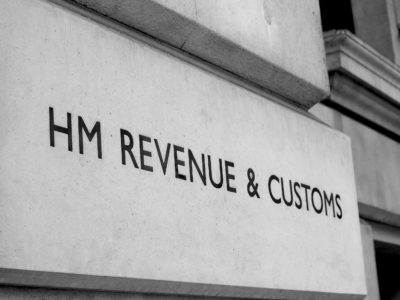Changes to buy-to-let mortgage interest tax relief – particularly affecting higher rate taxpayers – have been well documented ever since former chancellor George Osborne touted Section 24 in 2015.
The subsequent slow squeeze on rental profits has led many property owners to look at ways of reducing their tax burden from property income.
There’s no need to despair just yet though. As some property owners have sold up and exited the private rental market, this has created new opportunities for those still invested to continue to make tidy profits.
Here, we look at some of the ways you can legally reduce your tax liability or offset additional costs, helping you maximise the income you earn from property rentals.
Consider holding your property within a limited company
Many landlords don’t consider renting out property to be a business. Instead, they see it as supplemental income alongside another job, or a retirement fund in the making. This is especially the case for those with only one or two rental properties alongside their main residence.
However, individual property investors would be wise to consider the tax advantages of setting up a company to invest in property, especially if they are a higher-rate or additional-rate taxpayer, which many individuals have now become due to the erosion of mortgage interest tax relief in recent years.
While mortgage interest costs will no longer be deductible from income tax for individual property investors from 2021, this does not apply to limited company landlords. Therefore, these entities can deduct mortgage interest costs from rental income before they calculate corporation tax.
Corporation tax is substantially lower than individual income tax rates for higher-rate taxpayers, currently set at 19 per cent and dropping to 18 per cent in 2020. What’s more, mortgage availability is increasing for properties held within limited companies, with more competitive rates available.
If you set up a company, you can sell existing properties to it, circumnavigating individual taxation on properties – though you may be liable for any Stamp Duty or Capital Gains Tax in this process. Equally, any new properties can be purchased and held by the company.
This is not a move that would suit everybody and does come with some drawbacks, particularly if you need ready access to property income, so it is wise to consult with a specialist in property tax before holding property within a company. However, it has certainly become a more popular option for higher-rate taxpayers in recent years and one worth considering in 2019 as part of your property investment strategy.
Transfer property to your spouse
With a couple of limited exceptions, if you gift or sell property to your wife, husband or civil partner, you do not have to pay Capital Gains Tax.
This can be a useful way of reducing or even eliminating tax on the rental income of your property, if your partner happens to be in a lower income tax band than you are.
Should the income from property be the only income your spouse receives, they will not be taxed on anything up to their individual personal allowance and will only be taxed at 20 per cent on income above the threshold up to a maximum of £50,000. This allowance is due to increase in England and Wales to £12,500 from April 2019. Scottish Income Tax rates are different, but the principle is the same here.
Of course, there are no guarantees in life, so if you do gift a property to your spouse, make sure you expect to be with them for long enough to realise the profits on your rental property!
Make the most of allowable expenses
Allowable expenses can be offset against property income tax. These can include property maintenance and repair costs; replacing furnishings (including beds, televisions and white goods) on a like-for-like basis; the cost of leasehold ground rents; letting agency fees; wages of cleaners and gardeners; vehicle mileage in relation to the property; and insurance costs, amongst others.
More information on the expenses that can be offset against income is available on the GOV.UK website. These may be liable to change, so always keep an eye on the current rules.
It is imperative to keep receipts and records to substantiate any claims for allowable expenses, and to look at your full property portfolio when making assessments, to ensure you aren’t paying any tax unnecessarily.
Increase your rent
Increasing the rent you charge isn’t directly reducing your tax burden; rather, it’s helping to cover it. For this reason, it isn’t a particularly easy option to take, but as supply in the rental market struggles to keep up with demand – especially as landlords exit the market – it becomes a justifiable option for property owners.
As the costs of increased taxation adversely affect your profits, particularly where properties have large mortgages held against them and you have more interest to pay, it appears inevitable that rents will increase in many areas through 2019.
As always, rental values must still be comparative to others in your area, or you will struggle to let your property. Ensure that your rental contract has a rent review process included to allow for the option of increasing rent, too, otherwise you risk losing tenants and not being able to find others if you need to change the terms of the contract.
Change to an offset buy-to-let mortgage
Offset buy-to-let mortgages have limited availability, but they can help to reduce the amount of mortgage interest you pay. Given that mortgage interest payments can no longer be offset against property income from 2021, offset buy-to-let mortgages can help to flip the situation on its head somewhat, if you keep the income from your property invested in your offset mortgage savings account.
As an example, let’s say you have a mortgage of £150,000. If you make £15,000 income from a property and leave the money in your offset mortgage account, you will only pay mortgage interest on £135,000 – potentially saving you hundreds of pounds in interest payments each year for that property.
This effect is compounded with the more rental income you can keep in your offset savings account, further reducing the amount of the mortgage you pay interest on.
As less mortgage interest is paid, the profit you make will increase, offsetting against additional tax you may need to pay on your income.
Offset mortgages aren’t for everyone though. They often come with stringent stress-test criteria on affordability and may not offer the best interest rates in the market. However, if the rates are favourable compared with your current buy-to-let mortgage, they are certainly worth considering.
Before you do anything…
Make sure you assess the impact that tax will have on your property income. Changes to tax rules might not make as big an impact as you think and could have you worrying unnecessarily. But if you are due to pay significantly more tax in future, consider all the above options and, failing that, dispose of any property (as tax efficiently as you can) that is either unlikely to be profitable in the future, or pushes you into a higher tax bracket.

























Comments